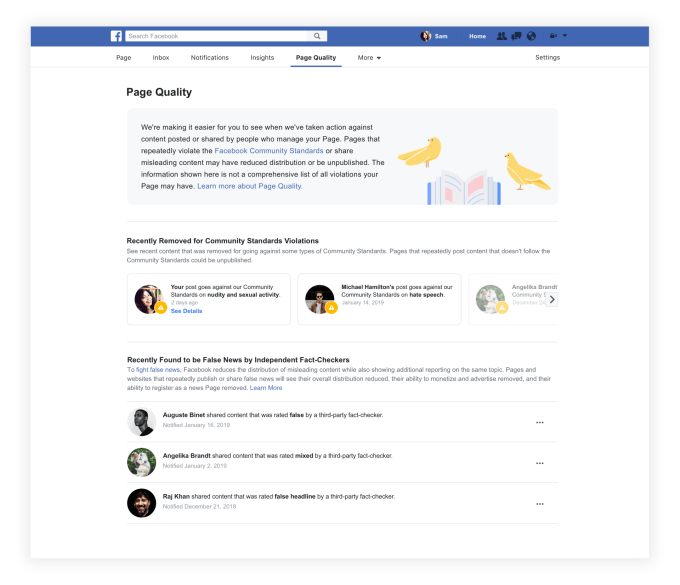The rise and fall of Theranos, the blood-testing company whose technology never worked despite its promises otherwise, has already been covered extensively. Most notably, the two-time Pulitzer Prize-winning reporter who broke open the story of Theranos’s secrets and lies, John Carreyrou, went on to author a best-selling book about the saga in Bad Blood.
Still, with Theranos founder and CEO Elizabeth Holmes continuing to face criminal charges that she knowingly defrauded investors, along with Theranos’s former president and COO (and Holmes’s longtime lover) Ramesh “Sunny” Balwani, the company and the pair’s trajectory remain a point of fascination for many.
A new documentary produced by ABC’s “Nightline” airing tonight — along with a six-part podcast series whose first episode is being released today (the others will be pushed out every Wednesday through February’s end) — will undoubtedly stoke even more questions about how investors and customers like Walgreens bought the act in the first place.
So we gathered after speaking yesterday with Rebecca Jarvis, ABC News’s chief business, technology, and economics correspondent, who led a three-year investigation into Theranos and Holmes, a Stanford drop-out who would go on to win acclaim as the youngest self-made female billionaire in the world before everything, very slowly, crashed down around her.
Some outtakes from our chat with Jarvis follow, edited lightly for length.
TC: You’ve been covering this story for years. Given all that you’ve seen in the depositions that “Nightline” plans to air as part of this documentary, and everything you’ve learned in your reporting, who was the worse actor in all of this, Holmes or Balwani? John Carreyrou certainly painted him as a kind of Svengali figure.
RJ: Most of what we’ve seen publicly to this point have been official statements, or statements made in very nurturing environments, or interviews don’t don’t explicitly look at the technology itself. When we got access to these depositions — and it’s thundreds of hours of footage — we couldn’t believe our eyes, watching Elizabeth Holmes’s deposition. It was just remarkable, hearing her having to answer to questions in a way that she’d never had to previously.
As for [the way Holmes and Balwani operated], Tyler Schultz [a former employee who later became a whistleblower] has said, for example, that he was flagging things that were wrong to Elizabeth, and after he would flag a concern, she would react with a non-response. It was Sunny who became known as the enforcer, telling Tyler to watch himself and not to continue to raise these issues.
TC: Are they open about their romantic relationship in the footage being aired?
RJ: Yes. We’ve never heard of them speak of it before, and viewers will see them talking about this relationship.
TC: What was something in the many depositions you pored over that really took your breath away?
RJ: One of the things that we heard over and over again, talking with various parties, including customers of Theranos, is that Elizabeth Holmes had told them that these Theranos-manufactured devices had been deployed in hospital rooms, emergency rooms and medevac helicopters among other places, and she’s asked if this is accurate, and in every single case, the answer is no.
Naturally, too, this whole thing was predicated on being able to run tests on a few drops of blood, and for the first time, you see Elizabeth having to answer questions about what the devices were really capable of. A lot of what comes up is how much of this was aspiration versus reality, and the great divide between those two things.
TC: The government filed its criminal fraud case against former Holmes and Balwani last June. Does the documentary cover the status of that case?
RJ: At this point, both of them have pleaded not guilty to the DOJ’s charges. She’d settled with the SEC without admitting wrongdoing; Balwani is still fighting the SEC’s charges. But they’ll have to face the DOJ in court. When will that happen [is a question mark]. The government shutdown has slowed the ability to get millions of documents to the DOJ and to prosecutors.
TC: How much do the podcast and the documentary have in common?
RJ: The podcast encompasses a greater breadth of our work. For example, among the numerous interviews in the podcast that you’ll hear is with Rochelle Gibbons, the wife of a former chief scientist at Theranos [Ian Gibbons] who’d committed suicide, an act she blames on Theranos. You’ll hear how the deal with Walgreens came together from behind-the-scenes accounts. Walgreens ultimately sued Theranos and settled with Theranos for an undisclosed sum, but people look at story and ask how this could have made it into Walgreens in the first place; we looked in depth at how it happened, talking with the people who were there and who share what they were shown by people from Theranos. We also talk with her honors physics teacher in high school and her family friendsl
TC: Do you think Holmes has a personality disorder?
RJ: I don’t have the medical training to answer that question. I”m not a psychologist. But people around her have used the word “sociopath.”
Her family friends give a real sense of what she was like as a kid. They paint a picture of someone who was incredibly precocious, who wanted to be successful and who believe her family’s history had a lot to do with this. There’s a kind of paradise lost backstory tying back to the Fleischmann yeast fortune, which had dwindled as it passed through the hands of generations, before it made it to her father, Christian Holmes. It’s something that people who were around the family say was a talking point among them.
TC: Were you ever concerned about your safety, reporting on Theranos? Holmes has repeatedly been portrayed as a bully.
RJ: I didn’t feel that way. We did pay Theranos a number of visits over the years and we did get kicked out. But we talked with other people who worked at Theranos at the time the story [of its failings] starting getting out into the mainstream, and for example, one employee who was crashing on the couch of a friend for a few days, at an address that she hadn’t even given to her mother, was sent a legal notice there, which made her believe she was being followed.
TC: How else did the company try to intimidate employees?
RJ: The fear was always that your job was on the line if you raised concerns. If you said, “This isn’t working,” you’d get in trouble and be asked: “Do you like working here?” A lot of people wound up quitting.
TC: Knowing what you do, do you have sympathy for the investors who’d gotten involved in Theranos? There’s only so much due diligence one can do but were there warning signs they should have heeded?
RJ: It’s true that early-stage venture investments, there isn’t a ton of due diligence you can do. For the story, we talk with one attorney who is suing on behalf of 200 investors, and he talks about his long, storied career, in which he has also gone up against Bernie Madoff. And in both of these cases, he points to affinity fraud. If an investment is good enough for you, who are a person in my social circle who I respect, it’s good enough for me. Betsy DeVos’s family was involved. Rupert Murdoch. Robert Kraft, owner of the New England Patriots. The Walton family. But it wasn’t just big names. We hear from a retired executive assistant who got a tip to put money into this, that it was the next Apple, and she lost $150,00 of her retirement savings — the biggest investment of her entire life.
[Renowned VC] Tim Draper wrote Holmes her first check for $1 million around the time she dropped out of Stanford. His daughter Jessie was a friend of hers. But the board you hear about came together in 2011 after she landed the support of [the dean of Stanford’s engineering school] Channing Robertson, who helped her put her board together. He was a very well-liked professor who was taken with her. Because he came on board right as she was leaving Stanford, he really gave credibility to her. Meanwhile, other Stanford professors were wondering: how does a young student with less than two years of college experience know enough about medical devices and the medical industry to develop a product like this?

Source: Tech Crunch









